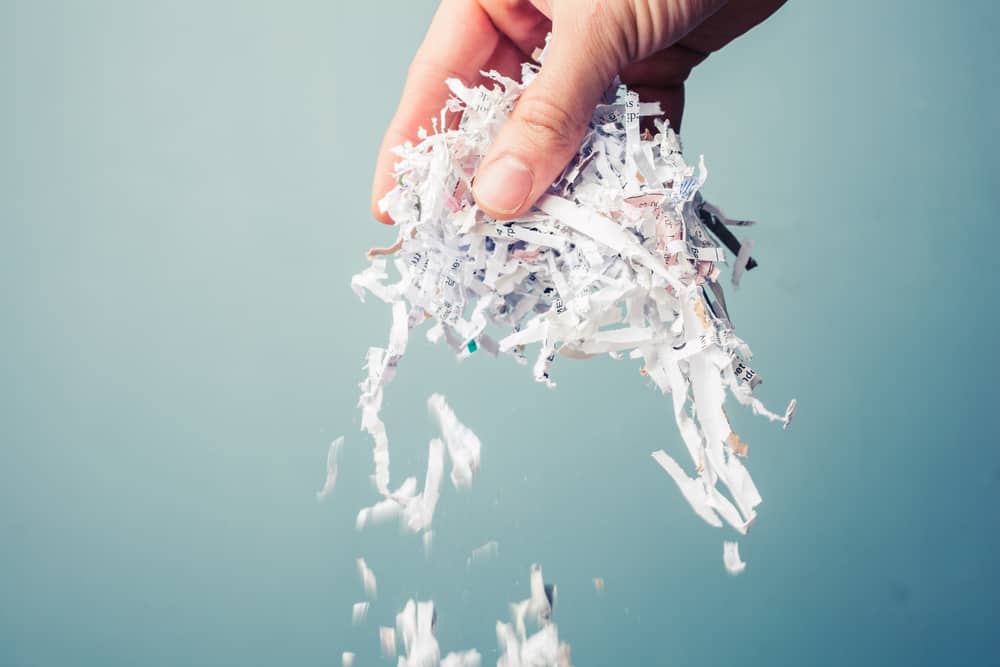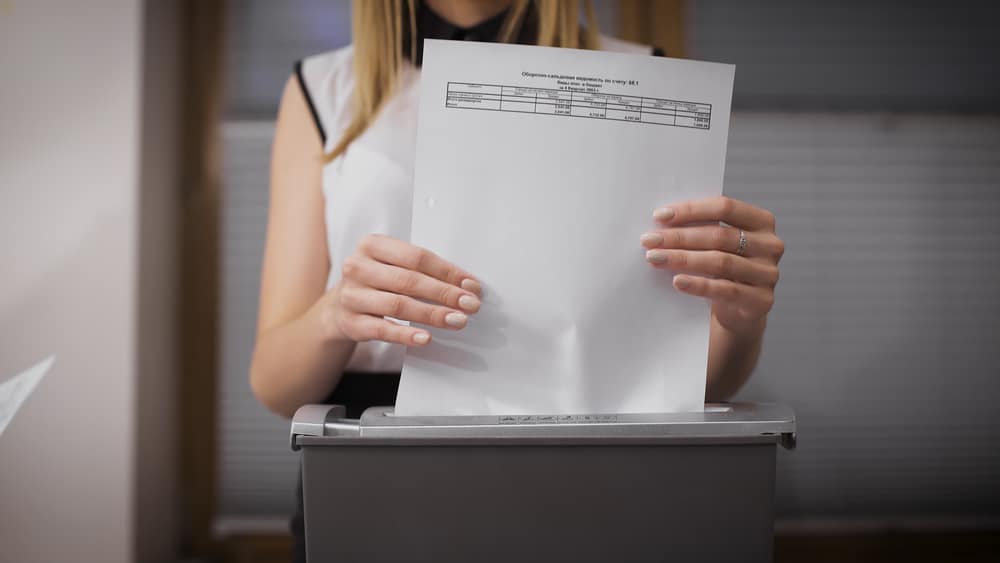Protecting the privacy of any sensitive data your business absorbs is paramount. Although it’s commonplace for businesses to use electronic and cloud storage systems today, some documents still require printing. When you need to dispose of sensitive papers in your office, the safest option is having these documents securely destroyed.
Shredding sensitive documents is the most effective way to safeguard your business against identity theft and data breaches. A data breach happens when personal information is accessed or disclosed without authorisation or is lost. Identity theft, or identity fraud or crime, involves someone using another individual’s personal information without consent, often to obtain some kind of benefit to them. This is particularly concerning as additional private details about you can often be obtained through other means, such as social media. If you’re unsure what documents to shred, we’ve created a list of five of the most at risk records you should always destroy.
Credit Card Information
Credit card details are an obvious one. Whether the card belongs to your business or your customers, destroying anything that contains such sensitive information is essential for either party’s financial security. Once the card has been used, shredding all identifiable evidence should be your next top priority.
Despite credit card statements concealing the full card number, statements can still present beneficial information to a thief. Spending habits for example can be used for fraudulent means and position the card holder with extra vulnerability to identity theft.
Bank Statements
Bank statements should be treated with the same caution and be securely destroyed using sensitive document disposal. In spite of recent security measures increasing the difficulty in gathering information from statements, they still pose a risk if they end up in the wrong hands. Other financial documents containing personal details like ATM receipts should also be destroyed as a further protection measure.
Contracts
Any business contract should be considered confidential, including employment contracts, property purchases and business contracts. These documents often detail very comprehensive personal information about you and the people you do business with. Such a goldmine of information makes contracts highly valuable to a thief. Once the contract has been finalised and an electronic copy is safely scanned and saved, destroy any hard copies to ensure they can’t be misused in any way. And if the contract ever needs to be re-called in the future, the same process can be applied – amend, print, sign, scan, save and destroy.
Tax Returns
While record-keeping is important, previous tax returns detail highly confidential information. The majority of tax returns are now paper-free and completed online, however many businesses still have older copies filed away due to the requirement to maintain a five year written evidence from lodgement date.
The most secure option for keeping these financial records confidential is to scan and save in a digital file, and then use a corporate document shredding service to destroy the remaining paperwork.
Pay Slips
Again, pay slips contain highly sensitive information to the individual on their entitlements, taxes and bank details. To ensure this personal information stays personal, any paper copies of payslips should be shredded as soon as no longer required.
You may be holding on to other business documents that aren’t included on this list, or you may not be aware what records you have are considered high risk and require confidential document shredding. Australian Privacy Law states businesses must ‘take reasonable steps to destroy or de-identify personal information that is no longer required.’ Not only does the careless discarding of confidential information put your business and your customer’s identities at risk, you become vulnerable to significant fines.
Contact Shred-X to learn more about our secure document destruction solutions today.



